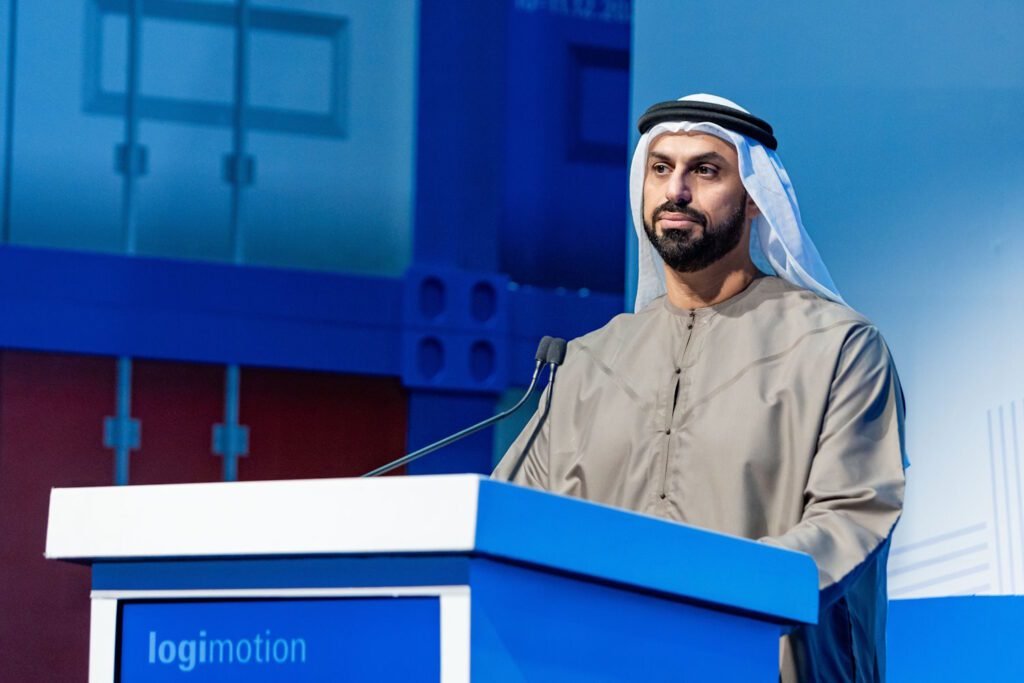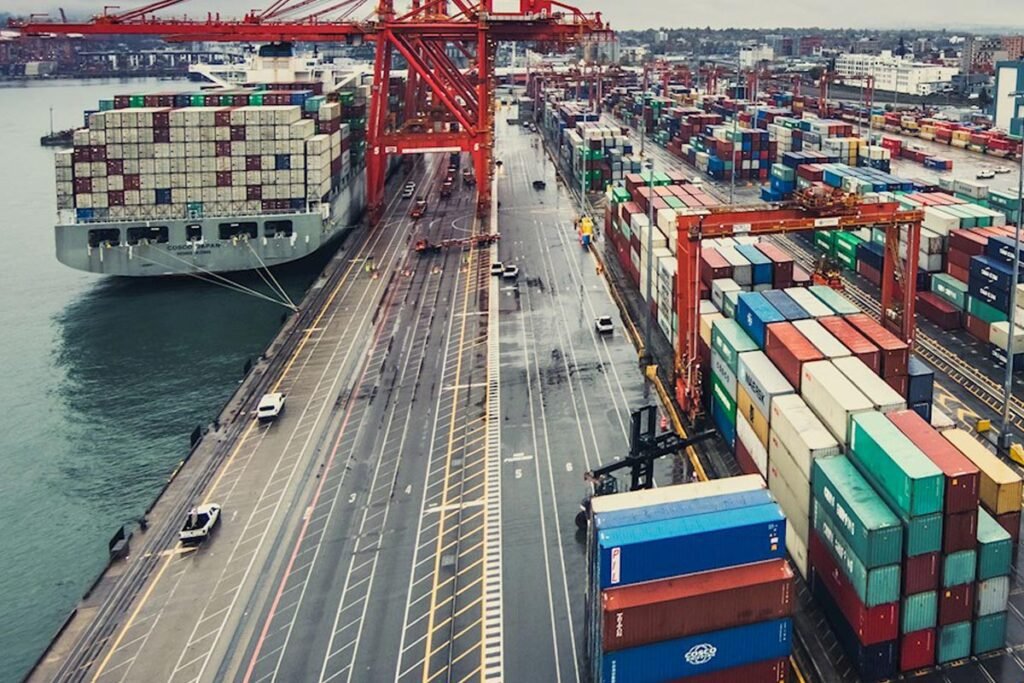The UAE has long been recognized as a strategic hub for international trade, playing a pivotal role in connecting the East and West. With its state-of-the-art infrastructure, strategic location, and strong political stability, the UAE has successfully positioned itself as a key player in the global trade landscape. In recent years, the country has strengthened its trade relations by forming valuable partnerships and launching new trade routes, all of which are set to further enhance its status as a global trade leader.
The Strategic Location of the UAE
One of the most significant advantages the UAE holds in global trade is its geographical position. Situated at the crossroads of Europe, Asia, and Africa, the country has always been at the heart of major international trade routes. This location has allowed the UAE to become a central transit point for goods moving between these regions. Major cities like Dubai and Abu Dhabi serve as vital trade and logistics hubs, with world-class ports and airports that cater to millions of containers and passengers each year.
The UAE’s access to the Arabian Gulf and proximity to the Suez Canal has also contributed to its importance in global shipping. These waterways link the Mediterranean to the Red Sea, making the UAE a key gateway for goods traveling between the East and West. With access to such strategic waterways, the country has capitalized on its positioning by building modern infrastructure and port facilities that support its growing trade volumes.

Bilateral and Multilateral Partnerships
To further cement its position in global trade, the UAE has worked tirelessly to build strong bilateral and multilateral partnerships. Over the years, the country has signed free trade agreements (FTAs) with several major economies. These agreements have opened up new avenues for trade, benefiting both the UAE and its trading partners. For instance, the UAE has strong trade ties with countries like China, India, and the United States, which are some of the world’s largest economies.
Additionally, the UAE’s membership in international organizations like the World Trade Organization (WTO) and the Gulf Cooperation Council (GCC) has played a key role in fostering regional and global trade relationships. These memberships have allowed the UAE to participate in discussions around global trade policies and regulations, positioning the country as a respected voice in international trade negotiations.

The Rise of New Trade Routes

As the global trade landscape continues to evolve, the UAE is actively seeking new trade routes to boost its economic influence. One of the key developments in this area is the expansion of the UAE’s role in the Belt and Road Initiative (BRI), a massive infrastructure project spearheaded by China. The BRI aims to connect countries across Asia, Europe, and Africa through a network of trade routes, and the UAE is positioned to be a major beneficiary of this initiative.
In line with this, the UAE has invested heavily in enhancing its ports and logistics capabilities. The development of new container terminals and the expansion of existing port facilities, such as the Port of Jebel Ali in Dubai, has allowed the UAE to accommodate larger volumes of trade. This increased capacity has made the UAE an even more attractive destination for international shipping companies, further strengthening its position as a key global trade hub.
The UAE is also exploring the development of new air and sea routes that connect it to emerging markets in Africa and Asia. For example, the launch of new direct flights between Dubai and several cities in Africa has opened up fresh opportunities for trade between the UAE and the African continent. With its strong air transport sector and a well-established network of shipping lines, the UAE is poised to play a leading role in facilitating trade between Africa, Asia, and the rest of the world.
Key Sectors Driving UAE’s Trade Growth
Several key sectors are driving the growth of trade in the UAE. These include energy, technology, manufacturing, and tourism. The UAE’s oil and gas sector remains one of the primary drivers of the country’s economy, with the country being one of the world’s largest producers of crude oil. However, the UAE has also diversified its economy in recent years, with sectors like technology and manufacturing playing an increasingly important role in its trade profile.
Technology, in particular, has become a focal point for the UAE’s economic growth. The country has invested heavily in developing its tech industry, and Dubai, in particular, has become a major hub for tech startups and innovation. This sector is expected to continue driving the UAE’s trade growth as demand for advanced technology and digital services increases globally.
Similarly, the UAE’s manufacturing sector has seen significant growth, with the country focusing on producing goods in sectors like construction, aerospace, and chemicals. The manufacturing sector has helped the UAE diversify its export base and reduce its reliance on oil exports, making it a more resilient economy.
Expanding Trade Relations with Africa

One of the most promising areas for growth in UAE’s global trade is its growing relationship with Africa. Over the last decade, the UAE has made significant investments in African markets, particularly in infrastructure, energy, and trade. The UAE has invested billions in ports, airports, and other transportation infrastructure across the African continent, creating a pathway for easier trade between the two regions.
This growing partnership has allowed the UAE to tap into Africa’s fast-growing consumer market. With Africa’s population projected to continue rising over the next few decades, the UAE sees the continent as a key market for its goods and services. To capitalize on this potential, the UAE has been working to streamline trade agreements with several African countries, reducing barriers to trade and creating new opportunities for businesses on both sides.
Looking Ahead: The Future of UAE’s Trade
As the UAE continues to strengthen its trade partnerships and expand its global trade routes, its role in the international trade system is only set to grow. With ongoing investments in infrastructure, technology, and logistics, the country is well-positioned to remain a central player in global commerce for years to come.
The UAE’s strategy of diversifying its economy, strengthening its trade agreements, and expanding its influence in emerging markets will undoubtedly keep it at the forefront of global trade. The continued expansion of the country’s trade routes, combined with its strategic partnerships, will further enhance its reputation as a global trade leader.
In conclusion, the UAE has proven itself as an influential force in global trade, and its future looks bright as it embraces new opportunities and strengthens its partnerships worldwide. With its commitment to fostering trade and investment, the UAE is poised to continue shaping the future of global commerce.
Also read: The Role of Islamic Finance in the UAE’s Global Investment Strategy














